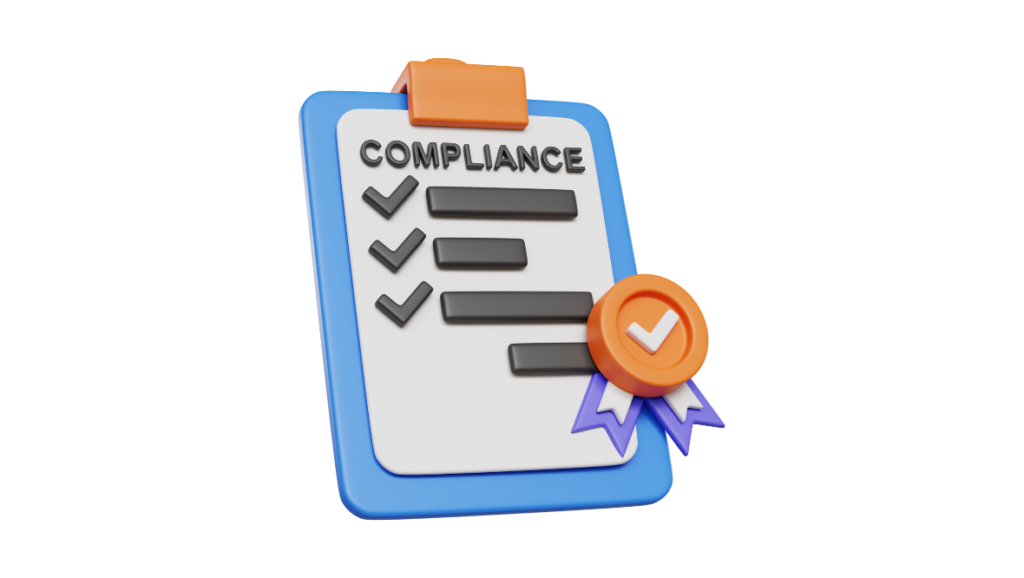CSR: 5 Reasons Why It’s Significant for Every Business

Explore the vital role of Corporate Social Responsibility (CSR) in business success— 5 key reasons that make it indispensable for companies.
In today’s world, consumers, investors, and employees increasingly hold businesses accountable not just for their bottom line, but also for their impact on society and the environment. This is where Corporate Social Responsibility (CSR) comes in. CSR encompasses a company’s commitment to operating ethically and sustainably, considering the social and environmental consequences of its decisions.
According to a US-based survey conducted by Aflac 41% of millennial investors care deeply about a company’s CSR efforts, actively researching them before investing. Additionally, the survey found that Nearly three-quarters (70%) of people believe companies should actively work to improve the world.
This article explores five compelling reasons why CSR is no longer optional, but essential for every business, regardless of size or industry. By incorporating strong CSR practices, companies can not only contribute to a better world but also reap significant benefits for their success and longevity.
Reason #1. Consumer Perception
Today, consumers are increasingly making purchasing decisions based on a company’s values and commitment to social responsibility. These are some key ways in which CSR significantly impacts consumer perception:
- Ethical Alignment: Consumers are drawn to companies that share their values and ethical principles. Strong CSR practices demonstrate a company’s commitment to doing good, fostering trust and loyalty from consumers who resonate with their message.
- Positive Brand Image: Engaging in positive social and environmental initiatives creates a positive brand image, differentiating a company from competitors who prioritize profit over purpose.
- Enhanced Reputation: A company’s CSR efforts can significantly enhance its reputation, attracting media attention, positive word-of-mouth, and increased brand recognition, ultimately leading to a stronger market position.
- Consumer Advocacy: Consumers who connect with a company’s CSR initiatives are more likely to become brand advocates, promoting the company and its products to their social circles, and further amplifying its positive image.
- Shifting Priorities: Millennials and Gen Z generations, in particular, significantly emphasize a company’s social and environmental impact when making purchasing decisions. Companies with strong CSR initiatives are more likely to attract and retain customers from these growing demographics.

Reason #2. Supply Chain Resilience
In a globalized economy, supply chains are complex and interconnected. Disruptions can occur unexpectedly, impacting a company’s ability to source materials, manufacture products, and deliver them to customers. This is where CSR plays a crucial role in strengthening supply chain resilience:
- Ethical Sourcing: By establishing ethical sourcing practices, companies can build stronger relationships with suppliers, fostering trust and transparency throughout the supply chain. This collaboration helps mitigate risks associated with unethical labor practices, environmental damage, or human rights violations at the supplier level.
- Sustainability Practices: Implementing sustainable practices within the supply chain, such as promoting energy efficiency and waste reduction, can minimize potential disruptions caused by resource scarcity or environmental regulations.
- Risk Management: Proactive CSR initiatives can help companies identify and manage potential risks throughout the supply chain, allowing them to build contingency plans and adapt to unexpected changes. This includes addressing potential social unrest or political instability in regions where suppliers operate.
- Attracting Responsible Partners: Companies with strong CSR practices are more likely to attract responsible partners throughout their supply chain, creating a network of businesses committed to ethical and sustainable operations. This collaborative network enhances overall supply chain resilience and ensures long-term stability.
CSR is considered important for competitiveness and has been shown to yield benefits in terms of risk management, cost savings, access to capital, customer relationships, human resource management and innovation capacity.
European Union (EU)

Reason #3. Compliance
In an increasingly complex regulatory environment, compliance with environmental, social, and governance (ESG) regulations has become essential for businesses of all sizes. Here’s how CSR plays a critical role in facilitating compliance:
- Proactive Risk Management: Strong CSR practices often go beyond the minimum requirements of regulations, proactively addressing potential compliance issues before they arise. This proactive approach minimizes the risk of legal penalties and reputational damage associated with non-compliance.
- Building a Culture of Ethics: A strong commitment to CSR fosters a culture of ethics and integrity within the organization. This translates into employees being more likely to identify and report potential compliance violations, creating a more robust internal control environment.
- Stakeholder Engagement: Effective CSR initiatives involve ongoing dialogue with stakeholders, including government agencies. This engagement allows companies to stay informed about evolving regulations and build positive relationships with regulatory bodies, potentially leading to smoother compliance processes.
- Transparency and Reporting: Transparent communication about CSR efforts, including environmental performance and social responsibility initiatives, demonstrates a company’s commitment to compliance and fosters trust with regulators. This proactive approach can lead to more favorable regulatory scrutiny.

Reason #4. Meeting Corporate Customer Demands for Supplier CSR Engagement
In today’s business landscape, corporate customers are increasingly demanding that their suppliers demonstrate strong CSR practices. This trend is driven by several factors:
- Brand Reputation: Companies are increasingly held accountable for the social and environmental impact of their entire supply chain. Engaging with responsible suppliers helps them mitigate risks to their reputation and maintain consumer trust.
- Regulatory Pressures: Regulations around ESG (environmental, social, and governance) factors are evolving rapidly. Companies are incentivized to ensure their suppliers comply with these regulations to avoid potential legal and financial repercussions.
- Transparency and Traceability: Consumers are demanding greater transparency in the supply chain, wanting to understand the origin and ethical practices behind the products they purchase. Engaging with responsible suppliers allows companies to meet these demands and build trust with their customers.

Reason #5. Creating value
While the above-mentioned benefits of CSR are undeniable, it’s also crucial to recognize the following ways how it creates tangible value for businesses of all sizes:
- Attracting and Retaining Top Talent: Millennials and Gen Z generations, in particular, prioritize working for companies with strong ethical and sustainable practices. By demonstrating a commitment to CSR, companies can attract and retain top talent, fostering a more engaged and productive workforce.
- Improved Operational Efficiency: Implementing sustainable practices within a company’s operations can lead to cost savings in areas like energy consumption, waste reduction, and resource utilization. Additionally, strong CSR practices can help attract partners and investors who prioritize sustainability, potentially leading to cost-effective financing opportunities.
- Increased Access to Capital: Investors are increasingly incorporating ESG factors into their investment decisions. Companies with strong CSR practices are often seen as lower-risk investments, potentially attracting more favorable terms from investors and lenders, which can fuel further growth and development.


